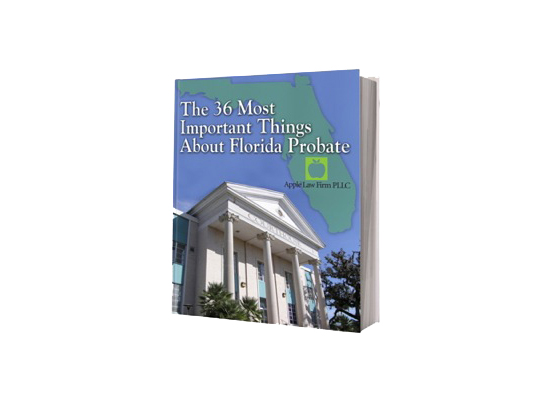LANDING SAFER
Living Trusts
Jacksonville Living Trust Lawyer
A Living Trust is one of the most commonly used estate planning tools here in Florida. A living trust is known more formally as a revocable trust. It is used as a means of avoiding the probate process, managing assets, and preserving assets and has many advantages over a will for some of our clients.
There are a few different types of trusts used in estate planning, but the living trust or revocable living trust is by far the most common. Like all trusts, a revocable trust has a settlor, or grantor, that creates the trust. A living trust also has a trustee or multiple trustees, which are the person or persons that acts as the manager or managers of the trust. The trustee is in charge of administering the trust according to the terms of the trust document and acts in the best interest of the beneficiaries. Typically, the person who creates the trust is current beneficiary of the trust, but there can be other beneficiaries. A living trust also has remainder beneficiaries, which are the persons or organizations that will inherit the trust property after the settlor passes.
What Does the Living Trust do?
Explaining what a trust is can be difficult. An easy way to define a trust is to think of it as being similar to a corporation. A trust is a separate legal entity from the person that creates the trust. It can hold assets, manage, and invest funds, and be sued for its actions or lack of action. A person called the trustee, who can be compared to the CEO of a company, manages the trust. This person has many fiduciary duties such as the duty of care and a duty of loyalty to ensure the trust is run efficiently, much like a CEO’s goal is to run his company efficiently.
A settlor creates the living trust through a document known as the trust agreement. This document is often long and inclusive. The trust agreement sets forth the trust purpose and the responsibilities of the trustee. The trust also names the beneficiaries to the trust, so that the trustee knows exactly where the assets held in the trust need to be distributed.
Reasons to use a Living Trust?
One reason the living trust is so often used is because this Florida estate planning tool is so flexible. As stated earlier, a living trust is a revocable trust. This means the settlor that created the trust can revoke or amend the trust at any time prior to death. This makes a living trust similar to a will. The settlor is also allowed to act as the trustee of the trust, or the settlor can appoint another person, company, or bank to act as the trustee. If the grantor of trust does act as the trustee he must administer the trust in the same capacity as if another person or entity was acting as the trustee.
Throughout the settlor’s lifetime, whether or not he or she decides to act as trustee, the settlor retains the right to modify the trust. This means the settlor can change the beneficiaries of the trust, add assets to the trust, or even take assets away from the trust.
One of the main benefits of a trust is that it allows the property held in the trust to avoid probate. Probate is the court-supervised administration of a decedent’s estate. The process is performed according to Florida law, and a court-appointed personal representative distributes the assets.
The probate process can be lengthy and costly because it is a much more formal process. The living trust avoids this problem by allowing the settlor to essentially transfer the assets during his lifetime. Once the settlor passes, the trust assets are then administered to the beneficiaries. A living trust can provide huge savings to those that own real estate in multiple states. Normally, probate is required in each state a person owns real property. By moving the real property into a trust, a settlor can avoid paying probate fees in multiple states.
The Disadvantages of the Living Trust
One drawback to a living trust compared to an asset protection trust is that it often does not protect the grantor, or the beneficiaries, of the trust from creditors. The courts essentially view a living trust as being an extension of the settlor for debt collection purposes.
To protect your assets from creditors, and your beneficiaries’ creditors we recommend creating a Florida asset protection trust. Often clients create a Living Trust to use as their checking account and an asset protection trust to use for their savings, stocks, or assets that they want to protect from creditors.
TO SET UP A Free Consultation*, CONTACT A FLORIDA LIVING TRUST LAWYER OR FLORIDA REVOCABLE TRUST ATTORNEY ONLINE OR CALL US AT (904) 685-1200.












